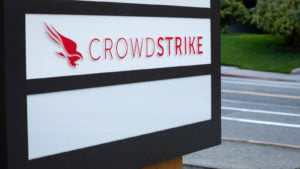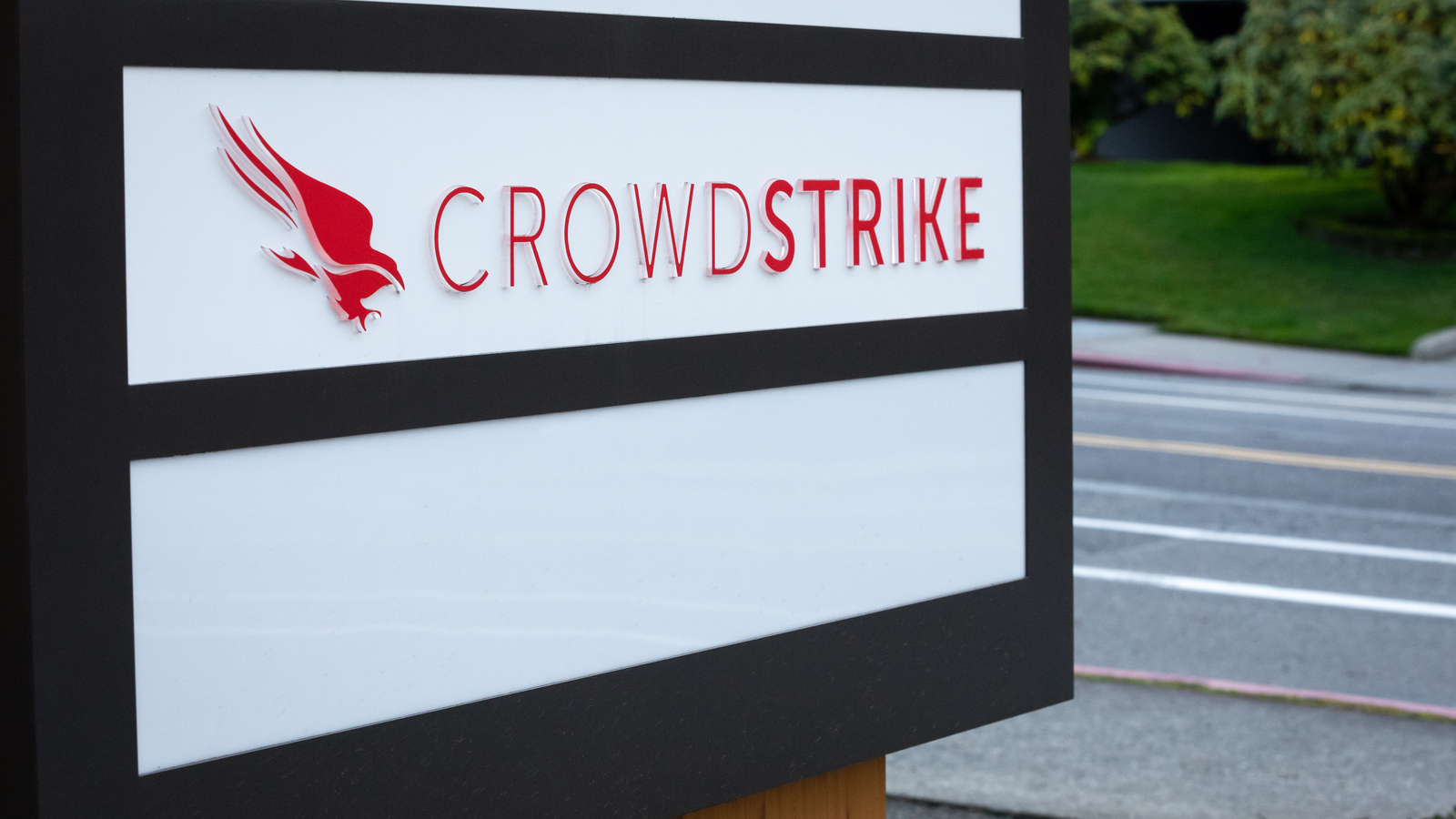So long as investors are only buying growth, CrowdStrike (NASDAQ:CRWD) stock should keep performing.

Even so, its market cap, which is more than 50 times revenue, is ridiculous.
CrowdStrike, a cybersecurity company, opened for trade Nov. 9 at $285.68 share. The market cap at that price is $65.22 billion. The expected average revenue for its 2022 fiscal year, ending this January, is about $1.41 billion.
Few question that valuation, but when they do it has an impact. CRWD stock fell by 4.5%, a loss of $2.5 billion, when a single analyst dropped his rating to neutral recently.
Investors saw it as a buying opportunity. The stock is back where it was when he made the call.
CRWD Stock: What You’re Buying
CrowdStrike makes Falcon XDR, a security system meant to protect every corporate device, even in the cloud. Falcon XDR is meant to give security managers complete visibility over their systems, and immediate defense in depth against attacks.
Does it work?
Well a public announcement in late August that CrowdStrike had taken a Fortune 500 account from Microsoft (NASDAQ:MSFT) after a ransomware attack sent CRWD stock up around $40 per share.
Such wins have been consistent for years. CrowdStrike was doing $52 million in business just 5 years ago. Revenue has doubled each year since, through 2021, when it hit $874 million. Yet, CrowdStrike isn’t profitable.
Still, with that growth rate it would be foolish not to invest every penny into the business. And it only took out its first significant debt last year, about $770 million worth.
CrowdStrike’s most valuable asset is the stock, some of which it’s using to buy SecureCircle, a start-up with 31 employees. SecureCircle offers data loss prevention (DLP) services, which, now when combined with CloudStrike’s products and services, can ensure customers have data “encryption in all three states: in transit, at rest and in use.”
A High Wire Act
Cybersecurity is a high wire act. The state of the art can change on a dime. The details are so esoteric investors may not know what’s happening in time to get out.
But the rewards can be enormous. CrowdStrike went public in June 2019 at about $64 per share, a valuation of $6.6 billion. Since then, investors have seen more than 350% in gains. Shares doubled in just the last year.
CrowdStrike has become the second-largest Software as a Service (SaaS) vendor in endpoint security, trailing only Japan’s Trend Micro (OTCMKTS:TMICY). CEO George Kurtz has become an especially bitter rival of Microsoft, accusing it of making the SolarWinds (NYSE:SWI) hack worse.
Since then, CrowdStrike has joined other Microsoft security competitors last year to form the Spectra Alliance, which focuses on securing the world of remote work.
After joining this group, CrowdStrike has been signing partnerships left-and-right. In fact, it has one with Amazon (NASDAQ:AMZN) and its Amazon Web Services (AWS) division. And, as part of what it calls the CrowdXDR Alliance, Alphabet’s (NASDAQ:GOOG, NASDAQ:GOOGL) Google Cloud.
Through the Alliance, CloudStrike hopes to build an industry standard around its eXtended Detection and Response (XDR) system.
CrowdStrike has also invested in JumpCloud, building an alternative to Microsoft’s Active Directory technology.
The Bottom Line on CrowdStrike
CrowdStrike has obviously become a hot player in the increasingly important cybersecurity world. And XDR is the hot new buzzword. Kurtz is the hot new face.
The only problem is that analysts see CrowdStrike as fully valued. The 18 analysts at Tipranks only see around a 9% gain from here over the next year. None are saying sell, but 3 aren’t saying buy.
So long as there is positive momentum in the market and a premium paid for growth and so long as CrowdStrike can stay on top of its niche, you should be fine buying it. That’s true even at these levels.
The trouble is that’s a lot of “ifs.”
If you like it, then you should wait for a fall below the 50-day moving average, like we saw in March, August and early October, before you pounce.
On the date of publication, Dana Blankenhorn held a long position in AMZN and MSFT. The opinions expressed in this article are those of the writer, subject to the InvestorPlace.com Publishing Guidelines.
Dana Blankenhorn has been a financial journalist since 1978. His latest book is Technology’s Big Bang: Yesterday, Today and Tomorrow with Moore’s Law, essays on technology available at the Amazon Kindle store. Follow him on Twitter at @danablankenhorn.
